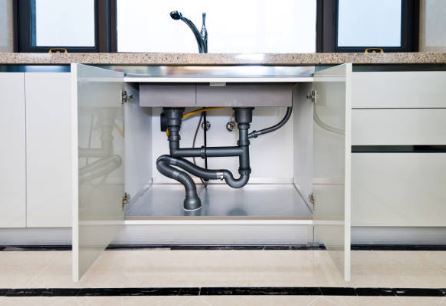When to Call a Professional Plumber: Understanding Plumbing Emergencies and When to Seek Help
 Introduction
Introduction
When it comes to home maintenance, one of the most crucial aspects is plumbing. Plumbing issues can arise at any time, and dealing with them promptly is essential to prevent costly damages and inconvenience. While some minor plumbing problems can be handled as DIY projects, there are situations when calling a professional plumber is the best course of action. In this article, we will discuss common plumbing emergencies and help you understand when it is appropriate to seek the expertise of a professional plumber.
1. What Qualifies as a Plumbing Emergency?
Understanding what constitutes a plumbing emergency is vital. Some examples include burst pipes, sewage backups, major leaks, and complete loss of water supply. These situations can be alarming and require immediate attention.
2. Assessing the Severity of the Issue
Before you decide to call a professional plumber, it’s crucial to assess the severity of the problem. Minor leaks or drips can often be temporarily managed, but larger leaks or sewer line issues need professional intervention.
3. DIY vs. Professional Help: Knowing the Limits
While DIY solutions can work for small plumbing problems like clogged drains, attempting complex repairs without the necessary expertise can worsen the situation. Recognize the limits of your plumbing knowledge and call a professional when needed.
4. Gas Line Issues: A Critical Concern
Gas line problems pose significant risks to your safety and require immediate action. If you detect a gas leak or suspect any issues with the gas supply, evacuate the area and call a professional plumber and the gas company immediately.
5. Water Heater Malfunctions
A malfunctioning water heater can lead to cold showers and inconvenience. If your water heater is not working correctly, it’s best to call a professional plumber to diagnose and repair the issue efficiently.
6. Persistent Low Water Pressure
Low water pressure can indicate underlying problems with your plumbing system. A professional plumber can identify the cause of the issue and provide an effective solution to restore normal water flow.
7. Frozen Pipes
In colder climates, frozen pipes are a common issue. Attempting to thaw frozen pipes on your own can lead to further damage. Contact a professional plumber who can thaw the pipes safely and prevent them from bursting.
8. Sewage Backups
Sewage backups are not only unpleasant but also hazardous to your health. If you experience a sewage backup in your home, call a professional plumber immediately to address the problem and prevent contamination.
9. Leaking Faucets and Fixtures
While a dripping faucet may seem like a minor annoyance, it can waste a significant amount of water over time. Calling a plumber to fix the issue promptly will save water and reduce your utility bills.
10. Clogged Drains
Clogged drains are a common household issue that can often be resolved with a plunger or drain cleaner. However, if the clog persists, a professional plumber can use specialized tools to clear the blockage effectively.
11. Renovations and Upgrades
If you’re planning to renovate your kitchen or bathroom or want to upgrade your plumbing fixtures, consulting a professional plumber is essential. They can ensure that the new installations are done correctly and comply with building codes.
12. Foul Odors from Drains
Unpleasant smells coming from your drains may indicate a buildup of debris or even a more serious issue within the plumbing system. A plumber can investigate the source of the odor and take appropriate action.
13. Water Stains and Mold Growth
Water stains on walls or ceilings and the presence of mold may suggest hidden leaks in your plumbing. Hiring a professional plumber to locate and repair these leaks will prevent further water damage and mold growth.
14. Aging Plumbing System
If your home has an older plumbing system, it may be prone to more frequent issues. A professional plumber can inspect the system, identify potential problems, and offer solutions to improve its reliability.
15. Conclusion
Knowing when to call a professional plumber is crucial for the well-being of your home and family. While some minor plumbing problems can be managed on your own, certain situations demand the expertise of a trained plumber. Remember, prompt action is essential to avoid further damage and costly repairs.
5 Unique FAQs
1. How much does it cost to hire a professional plumber?
The cost of hiring a professional plumber can vary depending on the complexity of the job and your location. It’s best to obtain quotes from multiple plumbers to compare prices.
2. Can I use chemical drain cleaners for clogs?
Chemical drain cleaners can be effective for minor clogs, but they may also damage your pipes over time. It’s advisable to use them sparingly and consider other methods first.
3. Is a water leak always visible?
Not always. Some water leaks can occur behind walls or under the floor, causing hidden damage. Look out for signs like water stains or an unexplained increase in your water bill.
4. How can I prevent frozen pipes in winter?
To prevent frozen pipes, insulate exposed pipes, keep cabinet doors open to allow warm air to circulate, and let faucets drip during very cold temperatures.
5. Are plumbing issues covered by homeowners’ insurance?
It depends on the specific policy and the cause of the plumbing issue. Generally, sudden and accidental damage may be covered, but gradual wear and tear are typically not covered.
Need to contact a plumber then call us at 0409 364 858 or contact us here
Here are some great readings about plumbing right here.
Tradelink And or Reece’s are a good place to start for fine tapware.

 Introduction
Introduction